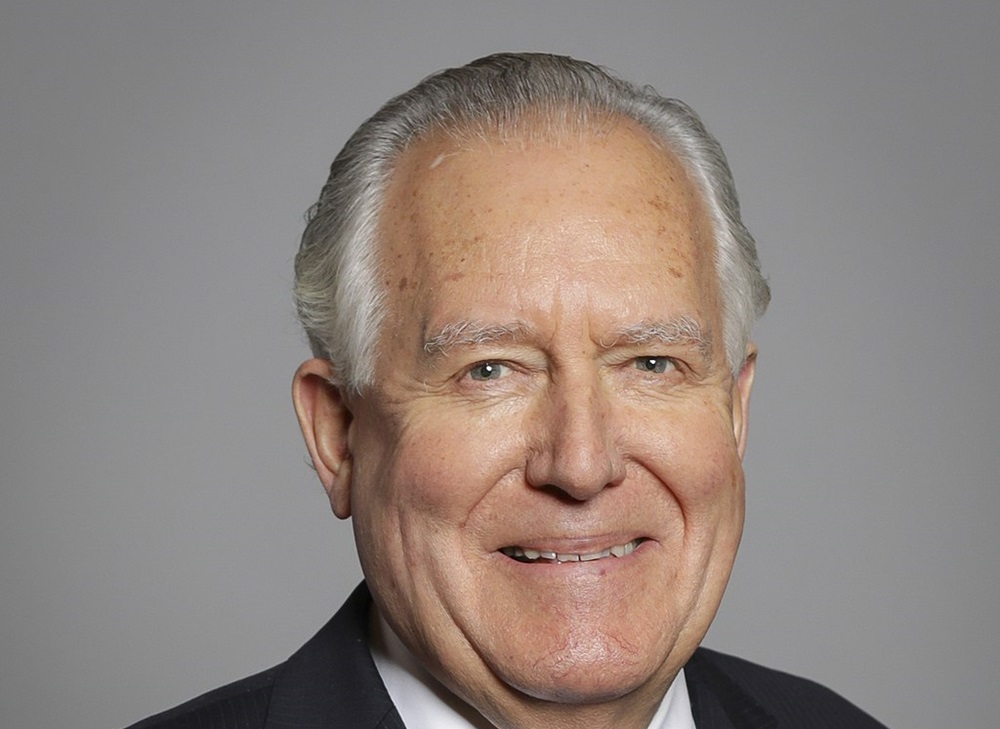Former Welsh Secretary hits out at bill to ban public bodies boycotting Israel

A leading anti-apartheid campaigner and former Welsh Secretary has condemned the UK Government’s plan to prevent boycotts of Israeli and other nations’ goods.
Labour peer Lord Hain, a former MP for Neath, said the move was one Russian President Vladimir Putin would be proud of, and called on fellow members of the House of Lords to “dismember it” through amendments.
A minister argued that public bodies have been taking positions that are inconsistent with the Government’s foreign policy, and that boycott campaigns disproportionally target Israel.
The exchanges took place in the House of Lords as peers debated the second reading of the Economic Activity of Public Bodies (Overseas Matters) Bill.
Exempted
Under the proposed changes, councils and other public bodies will be unable to boycott goods or services from any country, except those exempted by ministers using secondary legislation.
A special protection for Israel, the occupied Palestinian territories and the Golan Heights has been included to ensure ministers cannot in the future exempt them or allow for them to be targets of boycotts or divestment campaigns.
Lord Hain was a leader of the anti-apartheid Stop the Seventy Tour campaign, which aimed to stop the all-white South Africa cricket team touring the UK in 1970, and to disrupt a tour by its rugby team in the winter of 1969/70.
The former cabinet minister told the House of Lords: “This is another pernicious piece of legislation attacking the freedom to protest against injustice and oppression – except when the Government approves. It’s therefore a Bill of which Vladimir Putin would have been proud.”
He added: “This Conservative Party is on the wrong side of history, as indeed it was over the fight against the most institutionalised system of racism the world has ever seen, namely apartheid.”
He said the Government’s plan would prevent boycotts of Israeli products from illegal settlements in the West Bank.
Oppressive
He noted the Government’s stated intention to exempt Russia and so allow boycotts of its goods, but asked about other examples of “oppressive” governments across the world.
He also told peers: “This Bill echoes a part of (Margaret Thatcher’s) 1988 Local Government Act to prevent local authorities from boycotting goods from apartheid South Africa, as she attempted to shore up its economy.”
Lord Hain also cited a King’s Counsel’s legal opinion that the Bill, had it been in place in the 1980s, would have made it unlawful to refuse to source goods from apartheid South Africa.
The Labour peer said “shame on this Government for introducing this shameless Bill”, and suggested peers should “dismember it” and “stand up for human rights worldwide”.
Cabinet Office minister Baroness Neville-Rolfe opened the debate, telling peers: “At at time of increasing global division, the effective communication of the United Kingdom’s foreign policy is vital.
“In order to achieve our objectives the nation must speak clearly with one voice. It is for His Majesty’s Government alone to decide the UK’s foreign policy.”
She added that some public bodies have “tried to declare boycotts and divestment policies that are inconsistent with the foreign policy set by the Government”, and said it was “wrong” for public bodies to “act in a way that at home jeopardises community cohesion”.
Lady Neville-Rolfe said: “Boycotts and divestment campaigns disproportionately target Israel, especially in recent months.
“These boycotts contribute to the depressing rise of antisemitism in the UK.”
Free speech
She also insisted the Bill had been drafted “so as not to interfere with any individuals’ or bodies’ rights under existing human rights legislation”, and said the Government is not restricting any person or private organisation’s right to free speech.
The Bill would give effect to an “important manifesto commitment”, she said.
Labour frontbencher Baroness Chapman of Darlington said: “We on these benches oppose this Bill. We do not support boycott, divestment and sanctions (BDS) campaigns towards Israel – they wrongly single out one nation and are counterproductive to peace.
“But this Bill is so deeply flawed, it contains draconian powers, and we would say it fails in its central purpose, which surely ought to be preventing antisemitism.
“The risk is that this Bill will only serve to heighten tensions, and I’m afraid it plays into the hands of those who spout incomprehensible conspiracy theories, and has unintended consequences.”
Conservative former universities minister Lord Willetts criticised “shocking provisions” in the Bill.
He said safeguarding community cohesion is a “legitimate concern”, but added: “I have to say, if there had been an attempt to amend the Higher Education (Freedom of Speech) Bill so that freedom of speech was not permitted where it would damage community cohesion, the Government rightly would have had absolutely nothing to do with such an argument as a constraint on activity and freedom of speech.”
Support our Nation today
For the price of a cup of coffee a month you can help us create an independent, not-for-profit, national news service for the people of Wales, by the people of Wales.






Agree with Peter Hain on this issue